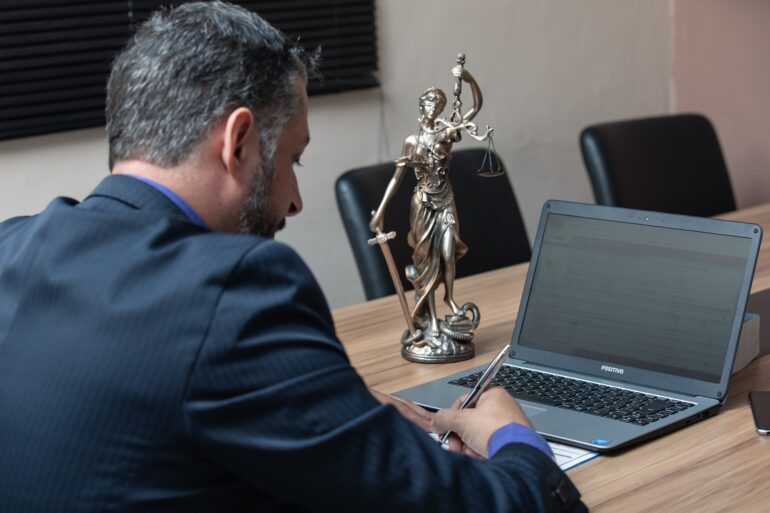TL;DR:
- A New York lawyer is facing legal repercussions after using an AI tool, ChatGPT, for legal research.
- The lawyer’s filing referenced non-existent legal cases, prompting concerns about the reliability of AI-generated content.
- The lawyer claims to have been unaware of the potential inaccuracies in ChatGPT’s content.
- The court demands an explanation from the lawyer’s legal team regarding the inclusion of fabricated cases in their filing.
- It is revealed that a colleague at the same law firm, not the lawyer representing the plaintiff, conducted the research using ChatGPT.
- The lawyer expresses regret for relying on the chatbot and vows to verify the authenticity of AI-generated content in the future.
- Both lawyers from the firm Levidow, Levidow & Oberman are ordered to explain their actions and potentially face disciplinary measures.
Main AI News:
In an extraordinary turn of events, a New York lawyer finds himself embroiled in a court hearing due to his firm’s utilization of an AI tool known as ChatGPT for legal research purposes. The presiding judge describes the situation as an “unprecedented circumstance” after discovering that the lawyer’s filing referenced non-existent legal cases. This revelation has raised serious questions about the reliability and veracity of AI-generated content in the legal field.
The lawyer in question professed his lack of awareness regarding the potential falsehoods embedded within the AI-generated content. While ChatGPT is known for its ability to generate original text upon request, it comes with the caveat that it may occasionally produce inaccurate information. Unfortunately, this oversight has now thrust the lawyer’s credibility into question, as the court grapples with the consequences of relying on AI technology for legal research.
The original case that triggered this controversy involved an individual suing an airline over an alleged personal injury. To bolster their argument and establish legal precedence, the plaintiff’s legal team submitted a brief citing several previous court cases. However, the airline’s legal representatives subsequently contacted the judge, stating their inability to locate the referenced cases within existing legal records.
Judge Castel, in an order demanding an explanation from the plaintiff’s legal team, highlighted the gravity of the situation: “Six of the submitted cases appear to be bogus judicial decisions with bogus quotes and bogus internal citations.” The truth gradually emerged through subsequent filings, revealing that the research had not been conducted by Peter LoDuca, the lawyer representing the plaintiff, but rather by a colleague at the same law firm, Steven A Schwartz. With over three decades of experience as an attorney, Schwartz had turned to ChatGPT in his pursuit of relevant precedents.
In a written statement, Mr. Schwartz clarified that Mr. LoDuca had no involvement in the research process and remained oblivious to its methodology. Expressing profound remorse, Schwartz admitted to relying on the chatbot without fully comprehending the potential inaccuracies it could produce. Furthermore, he pledged never to employ AI for legal research in the future without complete verification of its authenticity.
Attachments accompanying the filing include screenshots of a conversation between Mr. Schwartz and ChatGPT, shedding light on the unfolding debacle. One message reads, “Is Varghese a real case?” referring to Varghese v. China Southern Airlines Co Ltd, one of the cases that no other lawyer could authenticate. ChatGPT affirms its validity, prompting a further inquiry from Mr. Schwartz about its source. After “double checking,” ChatGPT confidently confirms the case’s existence, citing legal reference databases like LexisNexis and Westlaw as sources. It also asserts that the other cases provided to Mr. Schwartz are equally genuine.
Both lawyers, affiliated with the esteemed firm Levidow, Levidow & Oberman, now face the daunting task of justifying their actions and evading disciplinary measures at a hearing scheduled for June 8. This incident serves as a wake-up call to legal professionals worldwide, urging them to exercise caution when incorporating AI technology into their research practices.
Since its launch in November 2022, millions of users have turned to ChatGPT for its ability to provide natural, human-like responses and mimic various writing styles. However, this incident exposes the inherent risks associated with artificial intelligence, including the potential spread of misinformation and biases. The legal community must navigate this uncharted territory with vigilance, ensuring that the benefits of AI technology do not come at the expense of accuracy and reliability within the justice system.
Conlcusion:
This incident serves as a cautionary tale for the legal market and raises important considerations for the use of AI technology in legal research. The reliance on AI tools like ChatGPT carries inherent risks, such as the potential for inaccurate information and the spread of misinformation. Legal professionals must exercise vigilance and ensure that AI technology is used as a supplement to, rather than a replacement for, rigorous and verified research methods.
It underscores the need for careful scrutiny of AI-generated content and emphasizes the importance of maintaining the integrity and accuracy of information within the legal field. Market participants should approach the adoption of AI tools cautiously, understanding the limitations and potential consequences, while also taking steps to develop robust verification mechanisms to ensure the reliability of AI-generated research outputs.

